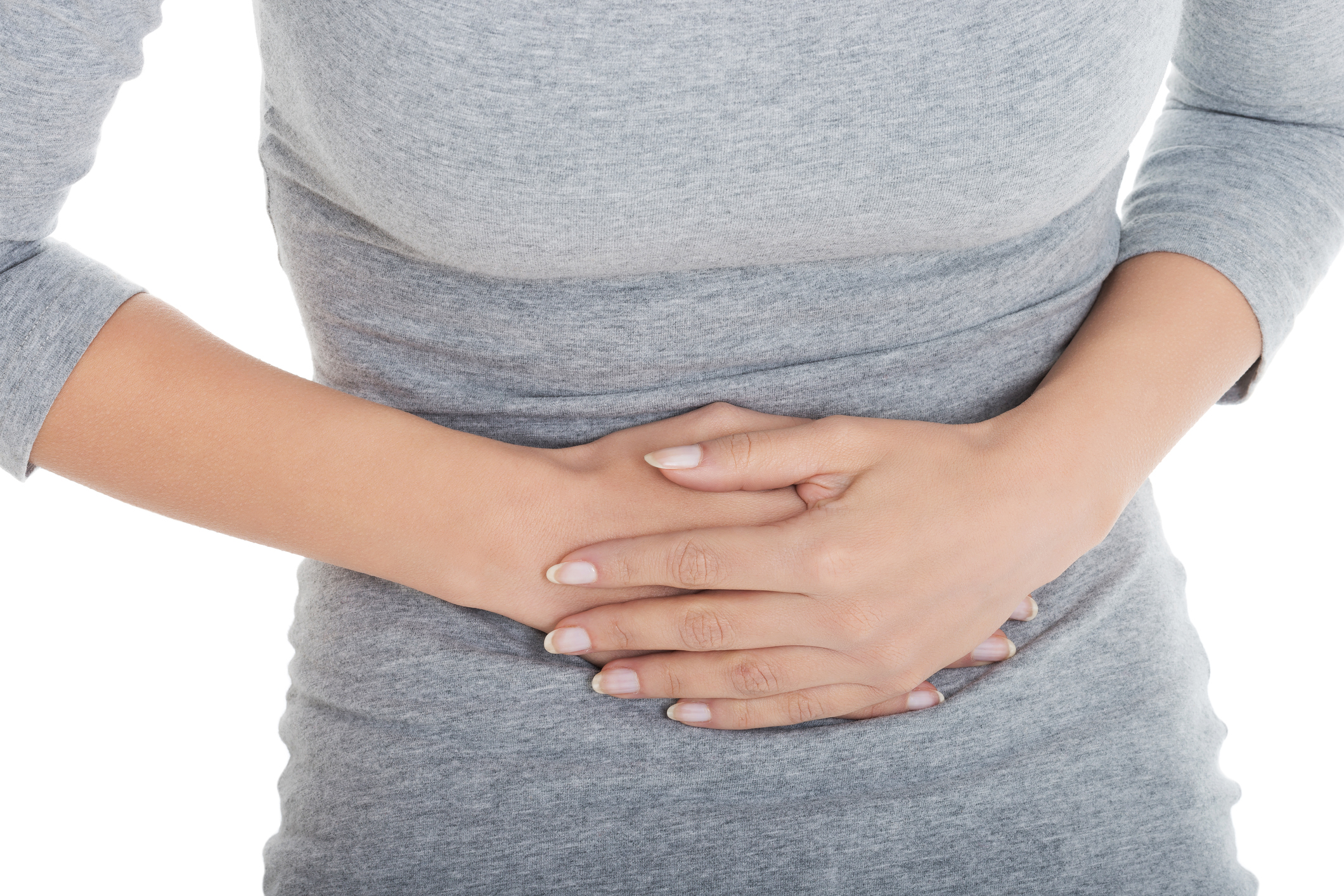In my practice, I meet many women who aren’t having regular periods. The absence of a menstrual cycle can be especially stressful for women who are trying to conceive a baby or hope to get pregnant in the future.
There are dozens of reasons why a woman might not get her period regularly, but one of the most common diagnoses I work with is hypothalamic amenorrhea.
Often, women with a history of disordered eating, over-exercising, gut issues, and/or emotional stress need help to heal these underlying causes so their bodies can return to a regular menstrual cycle.
I often advise these women to remember that healing can be a multi-faceted process and many factors need to be addressed before menstruation returns to a normal cycle.
Learn how to get your period back WITHOUT birth control in my new FREE TRAINING!
What is Hypothalamic Amenorrhea?
“Hypothalamic Amenorrhea” is the clinical name for when the brain stops sending “go ahead and reproduce!” signals to the ovaries.
It’s a condition in which menstruation stops for several months or more due to a problem involving the hypothalamus, the portion of the brain that links the nervous system to the endocrine system via the pituitary gland.
Hypothalamic amenorrhea affects approximately 5 percent of women of reproductive age, though that only considers the women who have been diagnosed with HA. Many women with irregular periods actually have hypothalamic suppression of ovulation, which leads to irregular or absent menstrual cycles.
This post will address many of the factors that can stall a woman’s ability to heal from hypothalamic amenorrhea.

SIBO and other gut infections
SIBO is the acronym for “small intestinal bacterial overgrowth,” defined as excessive bacteria in the small intestine. SIBO is the most common type of gut dysbiosis. Gut dysbiosis is when the microbiome of our small or large intestine is out of balance. In dysbiosis the following symptoms may occur:
- Bloating, belching, and flatulence after meals
- A sense of fullness after eating
- Indigestion or reflux
- Diarrhea and/or constipation
- Systemic reactions after eating (e.g. histamine intolerance)
- Nausea or diarrhea after taking supplements
SIBO is more common than you think
If you work with me on healing your HA and report chronic severe bloating or other IBS symptoms, it’s usually a red flag for a gut infection such as SIBO.
It’s tough to begin to heal from hypothalamic amenorrhea without first treating underlying gut infections. This is in part because you need to be able to eat in a way to support the recovery of the menstrual cycle.
When you feel bloated, you usually don’t want to eat very much, and normally carbs are difficult to tolerate. Accidental undereating is incredibly common in my clients with gut issues.
Also, if you have a gut issue, the body is under a lot of stress, making normal menstruation difficult to recover.
When women with hypothalamic amenorrhea report to me that they feel bloated on a consistent basis, or have chronic diarrhea or constipation, I often recommend that they get tested for SIBO immediately.
How To Get Tested For SIBO
There are several ways to test for SIBO. Speak to your healthcare provider before choosing the test that is best for you. Make sure the practitioner talks to you about your complete medical history before ordering any tests. There are many things that can cause similar symptoms to SIBO and you don’t want to miss those possible issues.
1. The Lactulose Breath Test SIBO is tested using a hydrogen breath test following the guidelines recommended by the American Gastroenterology Association. It is simple to use, non-invasive and accurate. The breath test can be done at home but it requires a 3-hour commitment. Individuals must fast for 12 hours, breathe into a small balloon, ingest a precise amount of sugar, and repeat breath samples every 15 minutes for 3 or more hours. This is the test I generally order for my SIBO-suspecting clients.
2. The Organix Dysbiosis Test This urine test looks for by-products of yeast or bacteria in the small intestine. If your small intestine is housing a yeast or bacterial overgrowth, byproducts will appear in your urine, indicating their presence. This test is generally easier for patients and only requires one single urine specimen.
3. The Comprehensive Stool Test This test looks at the flora of the large intestines. If levels of good bacteria are elevated, a SIBO diagnosis is possible.
Treatments For SIBO
If you indeed have SIBO, you will usually begin treatment with traditional antibiotics, herbal antibiotics, or dietary changes. Sometimes several courses of treatments are needed until SIBO is cured.
Listen to The Ancestral RDs Episode 33: Why Diet Alone Is Not Enough To Treat SIBO for more information about successfully treating SIBO.
This is why it’s so important to work with someone who can help treat your SIBO at the root rather than simply putting you on a restrictive diet.
Work with me to get one-on-one help testing and treating SIBO!
The Connection Between Gut Dysbiosis and HPA Axis Dysregulation
There is an undeniable connection between gut health and the brain. It is commonly referred to as the gut-brain axis. The gut-brain axis is a bi-directional relationship that allows the brain to manage digestive function, regulate the gut’s immune system, and coordinate the emotional and physical well-being of a person with the activity in the gut.
The gut-brain connection explains why we feel like our stomach is in knots before we give a public speech or when we watch scary movies.
Due to this highly connected gut-brain axis, physical and emotional stress can have a profound effect on GI function, and vice versa.
My article “Stress and Gut Health: How The Gut-Brain Axis Causes Your Digestive Symptoms” talks more about this connection.
New studies show that bacteria in the gastrointestinal tract can activate neural pathways, increasing the symptoms of stress and leading to adrenal dysfunction. Understanding this relationship may provide new approaches for the prevention and treatment of emotional illnesses such as anxiety and depression.
Whether or not you have gut dysbiosis, anyone struggling with hypothalamic amenorrhea likely has some degree of HPA axis dysregulation going on as well.
HPA Axis Dysregulation or “adrenal fatigue”
According to the Kresser Institute, HPA axis dysregulation (HPA-D) refers to a collection of nonspecific symptoms, such as body aches, fatigue, and nervousness, sleep disturbances and digestive problems. “Adrenal fatigue” is another term associated with these symptoms. I prefer to use the term HPA-D rather than “adrenal fatigue” when possible.
The hypothalamic–pituitary–adrenal axis (HPA Axis) is a complex set of direct influences and feedback interactions among three endocrine glands: the hypothalamus, the pituitary gland, and the adrenal gland.
This is part of the same axis that controls the ovaries and is dysfunctional in hypothalamic amenorrhea. That’s why HPA-D and HA are so often linked in many of my clients.
It’s important to address the underlying causes associated with HPA-D as they can play a large part in hypothalamic amenorrhea. Some of the main ways to treat a dysfunctional HPA axis are:
- Managing stress
- Eating adequate calories and nutrients
- Avoiding excessive exercise
- Reducing inflammation in your body
- Eliminating chronic infection
- Sleeping well
When your body is fighting an infection or another stressor, it’s using energy to heal. Unless any gut infections and/or HPA-D are properly treated, your period will have a hard time returning to normal. If you’re struggling with hypothalamic amenorrhea, you need to look at your gut health and stress levels as two critical factors in your healing.
Would you like to save this post?
Your email address is 100% safe and will never be sent spam.
Learn how to get your period back WITHOUT birth control in my new FREE TRAINING!
Stress
While you’re working on treating gut infections and/or HPA axis dysregulation, you can begin to manage the stress levels in your life in the hopes of healing your amenorrhea. Stress from any source is a huge issue in nearly all of my clients who are trying to get their period back.
In one study, across more than 1200 menstrual cycles in cynomolgus monkeys, the stressed out, socially subordinate monkeys consistently exhibited ovarian impairment, whereas others did not.
Now, I know we’re not monkeys, but as many of us have experienced before, stress can lead to missed cycles even in the short term. And chronic stress can shut down ovulation entirely.
Here are three useful questions you can ask yourself to help determine if you are addressing the stress in your life.
1. Is My Work-Life Balance Healthy?
Achieving a healthy work-life balance requires managing our professional and personal life in sustainable ways that keep our energy flowing, our minds and bodies healthy and our whole selves happy and content.
Here are 12 key strategies to achieving a work-life balance that will help you reassess your priorities and develop a healthy balance between all the daily responsibilities you have.
And sometimes balancing your work and personal life demands requires the ability to say no and commit to resting rather than constantly working. Read my article on rest to learn more about how to take rest seriously as part of your amenorrhea healing plan.
2. Am I Incorporating Stress-Reducing Activities Into My Life?
Practicing mind-body activities can play a big part in healing amenorrhea.
Meditation or prayer is one of the most effective ways to reduce stress and improve your tolerance of stress in general. Personally, I make it a point to pray every morning, and most evenings my husband and I engage in devotional practices that foster a better relationship with God and each other.
Yoga is another excellent stress reducer. By transferring focus and attention to the body and breath, yoga can help to temper anxious thoughts while also releasing physical tension.
This article covers several yoga poses that can contribute to healing your hypothalamic amenorrhea.
Organizing your thoughts in a journal can further reduce stress and negative thoughts. Research on college students has found that many benefits from journal-writing following times of emotional hardship as diaries have commonly been used as an effective form of emotional release.
And I know it sounds obvious, but having fun on a regular basis can significantly reduce your stress levels. It amazes me how many of my clients tell me that they don’t do anything purely for fun during the week! Here are ten ways in which you can play more and have more fun.
3. How Are My Relationships?
Supportive relationships play a huge role in our overall health and stress tolerance. If we’re not experiencing a regular connection with our close friends and loved ones, this can lead to high levels of stress.
If you lack positive relationships in your life right now, developing healthy friendships should be part of your hypothalamic amenorrhea healing plan. Find a community of like-minded individuals and commit to spending time regularly cultivating those relationships. For me, being part of a tight-knit church community has made a life-changing difference in my overall stress levels.
If you are in a committed relationship with someone (e.g. marriage), they can either be your biggest ally or your worst enemy when it comes to recovering from amenorrhea. You need your spouse on your side and committed to helping you reduce stress and providing loving support as you work through your amenorrhea challenges.
Unfortunately, many couples experience stress when they are having trouble conceiving. This can lead to frustration and even arguing or fighting when either person is stressed by their fertility challenges. Other times, it was the stress and fighting in the relationship itself that led to the loss of the regular menstrual cycle.
Neither of these situations is healthy. It’s important to seek counseling if marital problems begin to arise as you are experiencing amenorrhea, or if they were there before the amenorrhea developed.

Disordered Eating and Exercise Habits
Forget the advice “eat less and move more.”
In fact, you need to do the complete opposite when you’re struggling with hypothalamic amenorrhea.
You have to relax and give your body the nourishment (in the form of calories) it needs in order to consider itself well-fed. Begin to focus on your health, wellness, fertility, happiness, and activities rather than on the specific size of your body.
If you have a history of disordered eating or over-exercising, it can be the main factor that causes amenorrhea.
Disordered eating refers to a wide range of abnormal eating behaviors, many of which are similar to eating disorders. Disordered eating includes behaviors such as chronic restrained eating or “dieting”, compulsive overeating, and binge eating. It’s more common for me to see restrictive dieting and undereating in my clients with amenorrhea.
Over-exercise or exercise addiction is an unhealthy obsession with physical fitness and exercise. It’s often a result of body image and usually goes along with disordered eating. Overtraining can lead to many unhealthy symptoms, with a loss of a regular period being one of the most common ones in women.
If you have a history of disordered eating, over-exercising, or exercise addiction, it can be very stressful to accept that eating more and exercising less might be required to heal your amenorrhea. Many times, the unhealthy thought processes related to exercise and body image remain, even when you feel like your eating disorder is in the past.
Working one on one with a professional is a good idea for someone with a history of disordered eating or exercise addiction. A mental health therapist specializing in eating disorders could be especially helpful as you begin the process of recovery.
Don’t skip over addressing the emotional issues and body image challenges that led you to disordered eating and exercise in the first place.
It is TOUGH work, but it has a significant impact on healing.
Learn how to get your period back WITHOUT birth control in my new FREE TRAINING!
Did this article educate you about how to get your period back? If so, please SHARE it with others interested in learning more about this topic and leave your comments below.
This post may contain affiliate links. If you click on a link and make a purchase, I may receive a small commission.



+ show Comments
- Hide Comments
add a comment